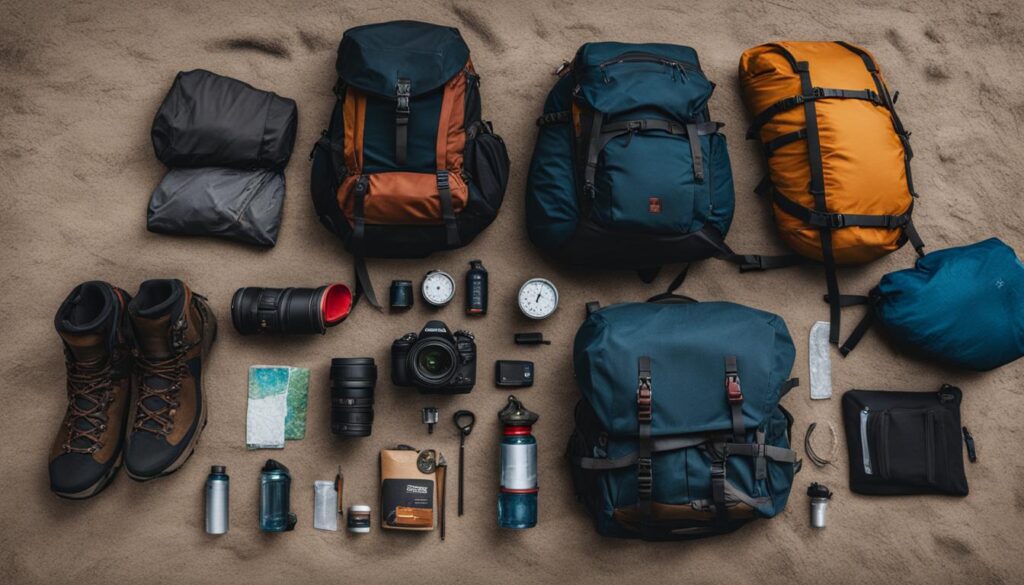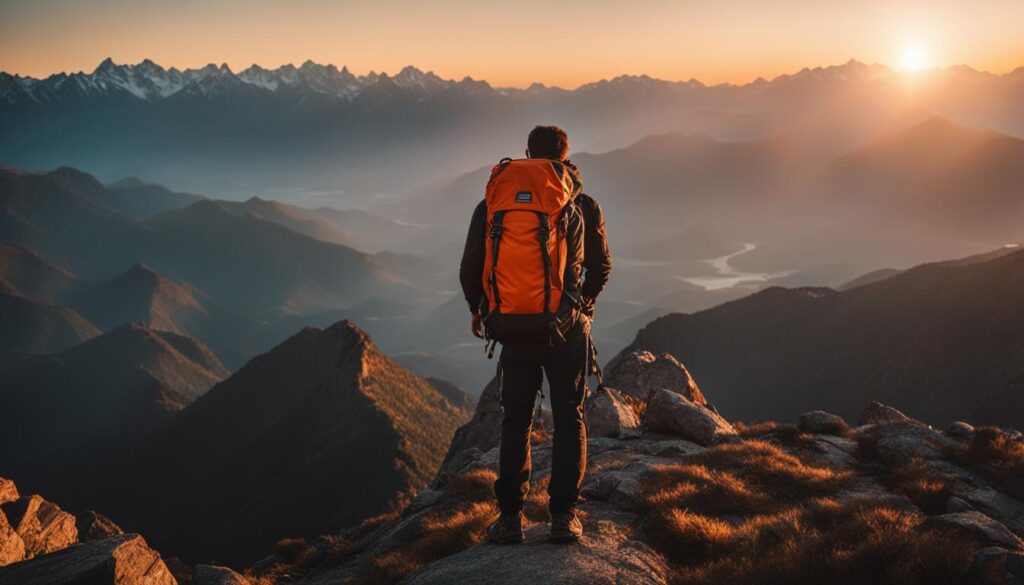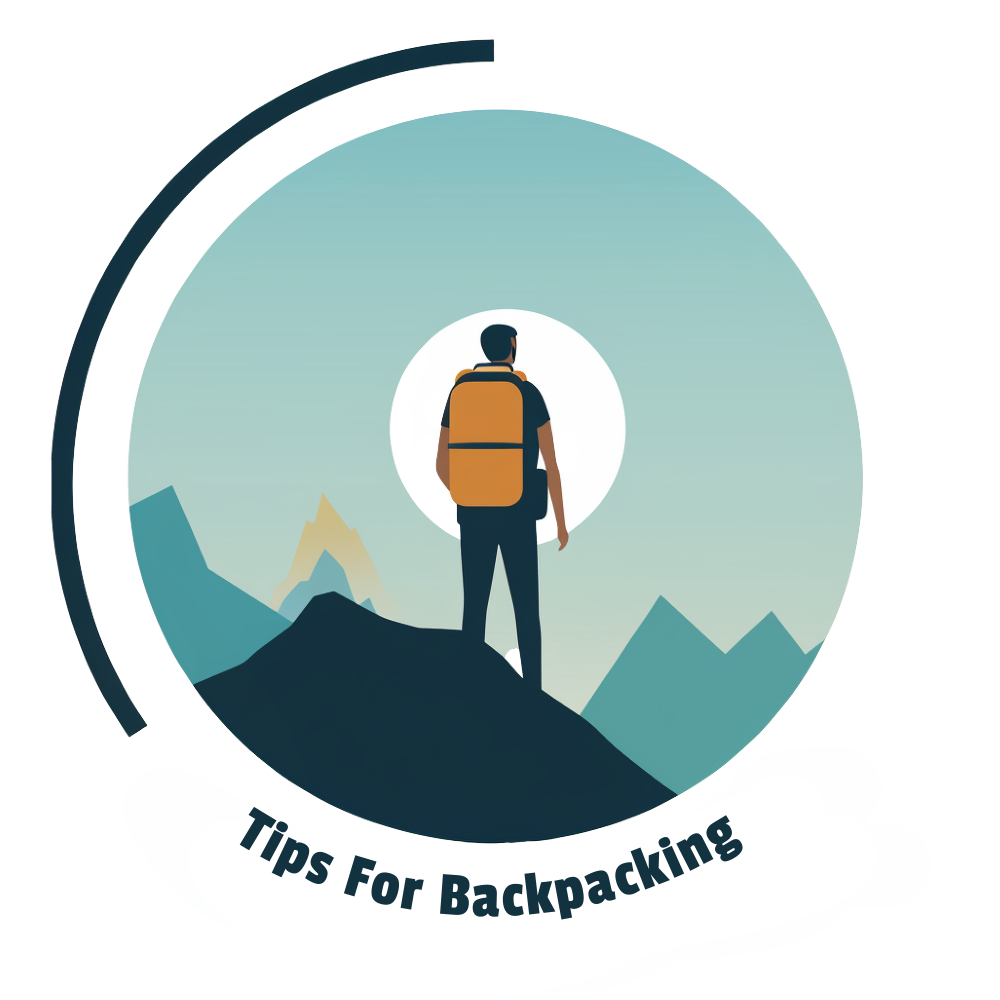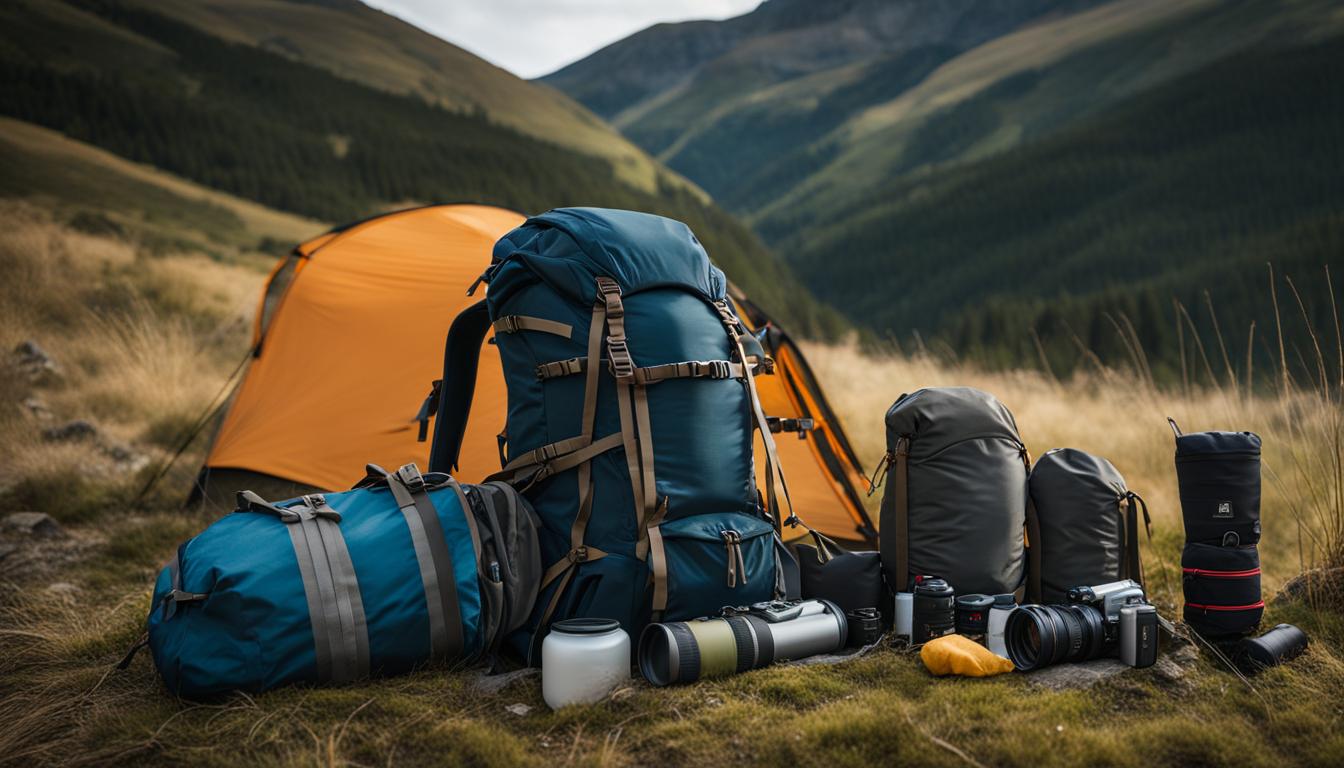When backpacking, reducing the weight of your load is essential for a more enjoyable and comfortable experience. Carrying a lighter pack can help prevent blisters, aches, and pains, and allow you to cover more miles quickly. In order to minimize your backpacking load, there are certain must-have items that you should focus on. These include your backpack, shelter, sleeping system, and other essential gear. By choosing lightweight options and rethinking what is truly essential, you can significantly reduce the weight of your pack without sacrificing comfort or safety.
Key Takeaways:
- Choosing lightweight backpacking gear is crucial for minimizing your load.
- Opt for a backpack that is the right size for your needs.
- Consider the weight distribution and comfort provided by different backpack frames.
- Streamline your gear and essentials by reevaluating what is truly necessary.
- Optimize your backpacking load by evaluating your pack after each trip and leaving unused items at home.
Choosing the right backpack

When it comes to minimizing your backpacking load, selecting the right backpack is of utmost importance. A lightweight backpack can significantly reduce the weight you’re carrying and make your hiking experience more comfortable. Here are some key factors to consider:
- Size: Choose a backpack that suits your needs. Don’t go for an oversized pack if you don’t require the extra space as it will only add unnecessary weight.
- Frame type: Frameless backpacks are suitable for carrying less than 15-20 pounds. They are lighter but may lack the same level of comfort as frame backpacks, which offer better weight distribution.
- Construction: Look for backpacks with lightweight materials and minimal pockets and zippers. These features help reduce weight without compromising durability.
By carefully considering these factors, you can find a backpack that balances weight, functionality, and comfort.
In addition to the points mentioned above, it’s essential to ensure that your backpack fits properly. A well-fitting backpack distributes weight evenly and reduces strain on your shoulders and back. Adjust the straps and waist belt to achieve a comfortable fit, and consider trying on different backpacks before making a final decision.
Remember, the right backpack can make a world of difference when it comes to minimizing your load and enjoying your backpacking adventure to the fullest.
Now, let’s move on to the next step of minimizing your backpacking load: streamlining your gear and essentials.
Streamlining your Gear and Essentials

When it comes to backpacking, streamlining your gear and essentials is key to lightening your load and optimizing your outdoor adventure. By reevaluating what is truly necessary and making smart choices, you can significantly reduce the weight of your backpack without compromising safety or comfort. In this section, I will share some valuable tips and strategies to help you pack smarter and lighter.
Choosing Multipurpose Gear
One effective way to minimize your backpacking load is to opt for gear that serves multiple purposes. This not only saves space but also reduces the number of items you need to carry. For example, consider using parachute cord instead of separate ropes for different tasks. A Swiss Army Knife with multiple tools can be a versatile and compact option instead of carrying individual tools. By choosing multipurpose gear, you can lighten your load without sacrificing functionality.
Mindful Packing and Leaving Behind Non-Essential Items
Another important aspect of streamlining your gear is being mindful of what you pack. Take the time to evaluate each item and determine its true necessity. Leave behind non-essential items that can add unnecessary weight to your backpack. For example, packing excessive toiletries or extra changes of clothes can quickly add up. Instead, focus on lightweight and quick-drying clothing options and bring only the essential hygiene items. By being selective in what you pack, you can significantly reduce the weight of your backpack.
Evaluating and Upgrading your Big Four Items
The “big four” items in backpacking include your backpack, sleeping bag, sleeping pad, and tent. These items often contribute to a significant portion of your backpack’s weight. Evaluate each of these items and consider upgrading to lighter options without compromising safety and comfort. Look for backpacks and tents made of lightweight materials and sleeping bags with high-quality insulation. By investing in lighter big four items, you can make a significant impact on reducing your overall backpacking load.
| Item | Weight |
|---|---|
| Old Backpack | 5 lbs |
| New Lightweight Backpack | 2.5 lbs |
| Old Sleeping Bag | 3.5 lbs |
| New Lightweight Sleeping Bag | 2 lbs |
| Old Sleeping Pad | 1.5 lbs |
| New Lightweight Sleeping Pad | 0.75 lbs |
| Old Tent | 6 lbs |
| New Lightweight Tent | 3 lbs |
As shown in the table above, upgrading to lighter big four items can have a significant impact on reducing your backpack’s weight. By carefully selecting and upgrading these essentials, you can make a noticeable difference in your overall backpacking load.
By implementing these tips and strategies for streamlining your gear and essentials, you can optimize your backpacking load and enjoy a lighter, more comfortable hiking experience. Remember to choose multipurpose gear, pack mindfully, and evaluate and upgrade your big four items. With a lighter load, you’ll be able to cover more miles and fully embrace the beauty of the great outdoors.
What Are the Essential Must-Have Items for Backpacking Beginners?
When it comes to backpacking basics for beginners, there are a few essential items that every newbie should have. These include a reliable backpack, a lightweight tent, a sleeping bag, a portable stove, a water filtration system, and sturdy hiking boots. These items will help ensure a safe and enjoyable backpacking experience.
Conclusion
Minimizing your backpacking load is crucial for a more enjoyable and efficient hiking experience. By carefully choosing a lightweight backpack, streamlining your gear and essentials, and evaluating your pack after each trip, you can significantly reduce the weight of your pack without sacrificing comfort or safety. Remember to always prioritize the essentials and choose multipurpose gear whenever possible. With the right approach and mindset, you can optimize your backpacking load and fully enjoy your outdoor adventures.
When it comes to lightweight hiking gear, efficiency is key. By packing efficient backpacking supplies, you not only save weight but also make your hiking experience more enjoyable. Consider investing in gear that is specifically designed to be lightweight and compact, such as ultralight tents, sleeping bags, and cooking equipment. Check off each item on your backpacking gear checklist to ensure you have everything you need while keeping the weight to a minimum.
As you embark on your backpacking adventures, remember that reducing your load doesn’t mean sacrificing comfort or safety. It’s about being mindful of what you truly need and making smart choices. By following these tips and focusing on lightweight hiking gear and efficient backpacking supplies, you’ll be able to enjoy the freedom and beauty of the great outdoors without the burden of unnecessary weight.

